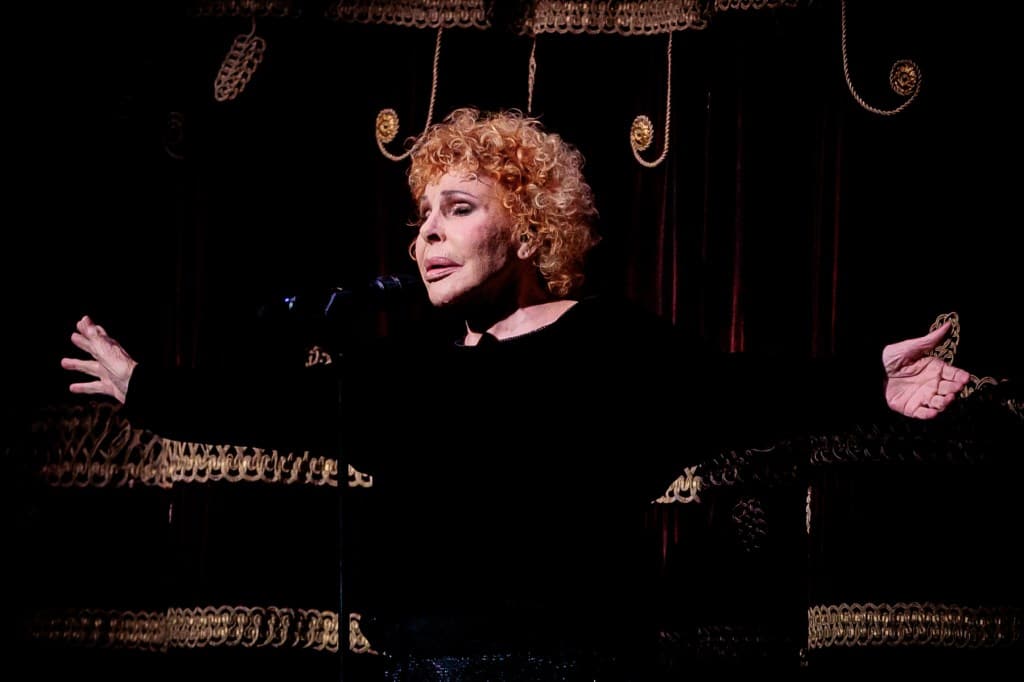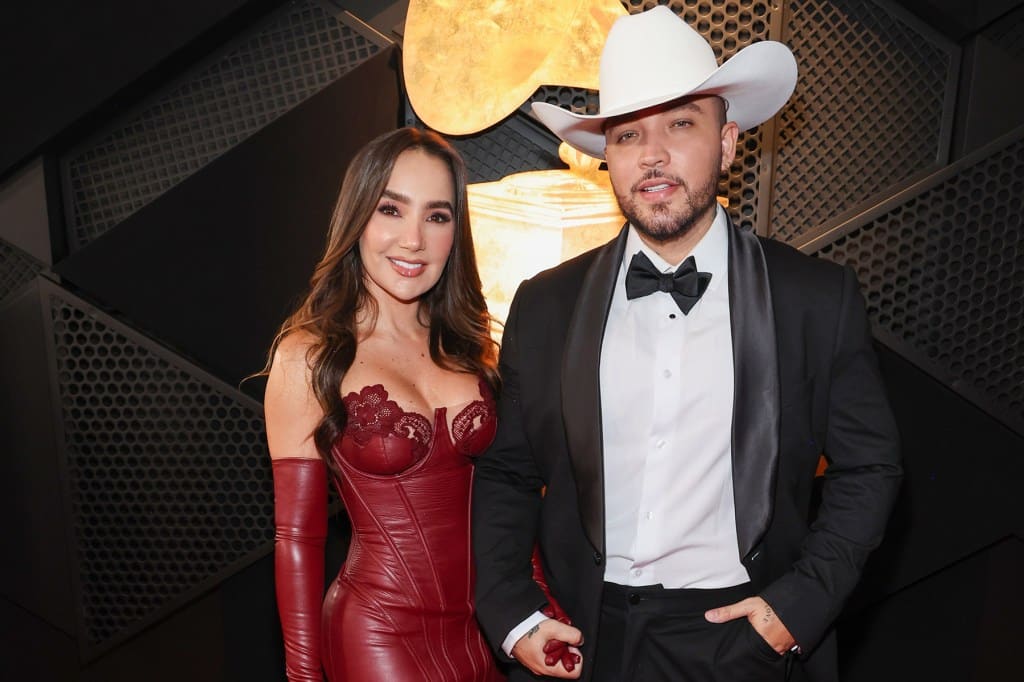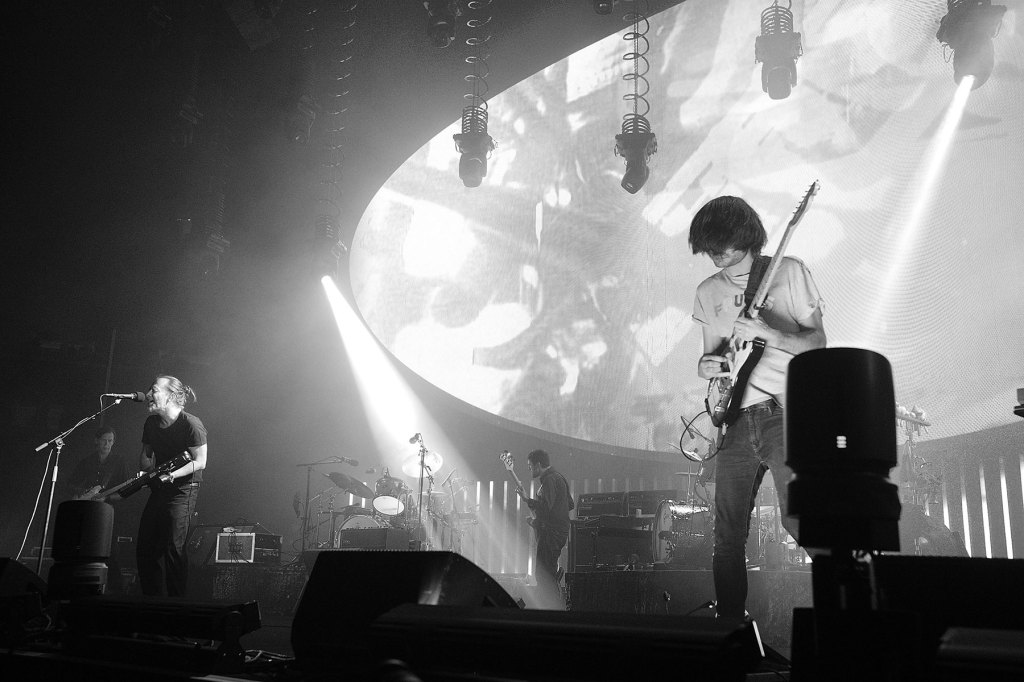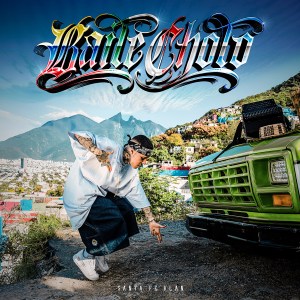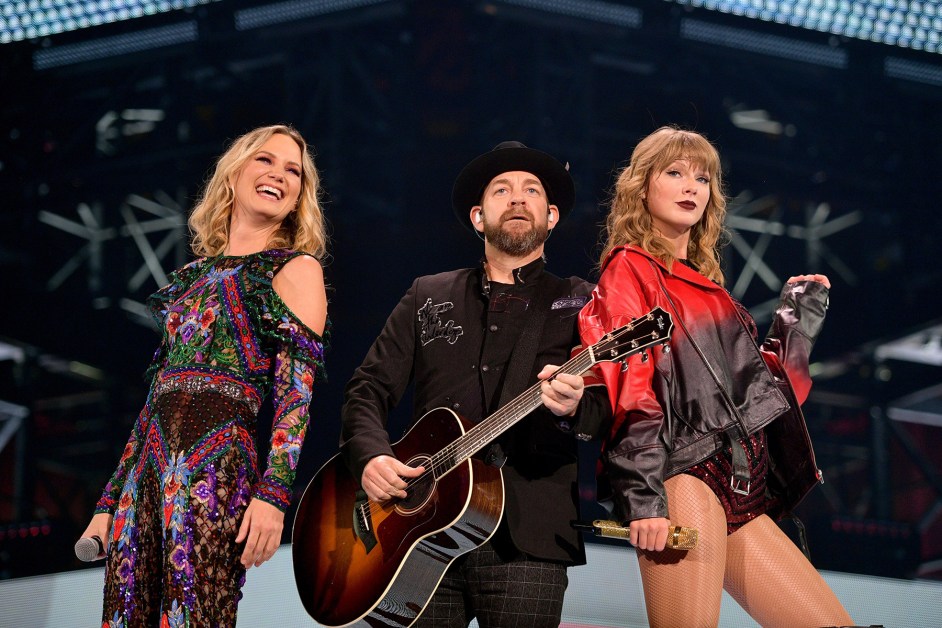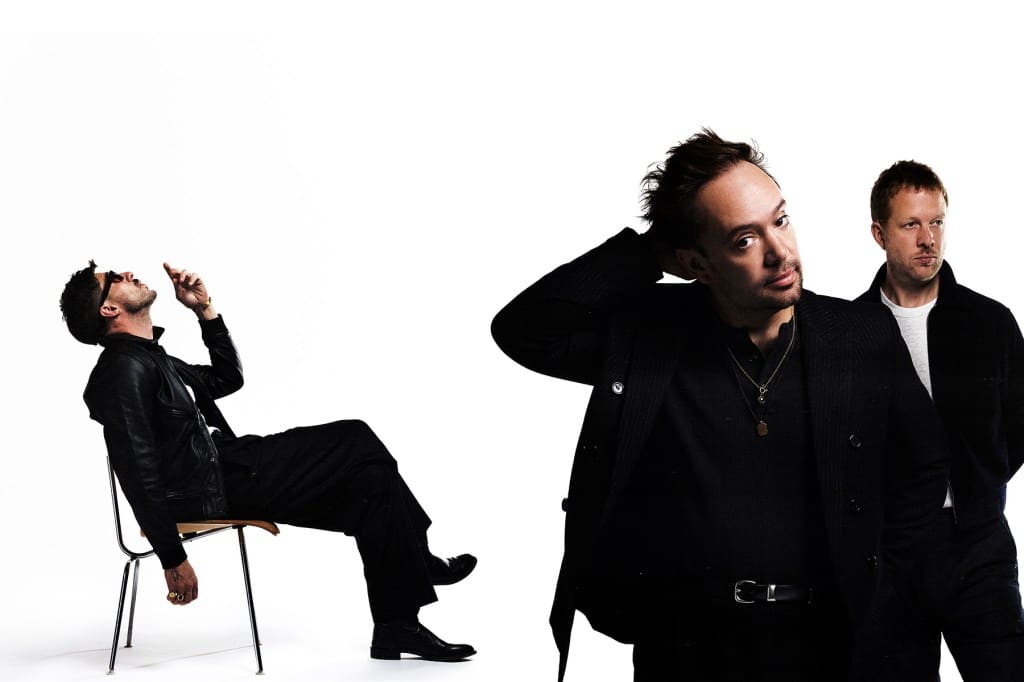Music
Page: 25
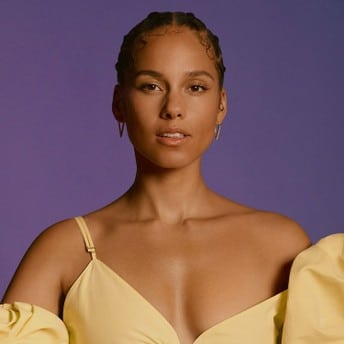
Trending on Billboard
Alicia Keys had a busy Friday (Nov. 21). Not only did the 17-time Grammy winner release a new holiday song and guest on a single from an Italian vocal legend, but she made a special appearance alongside the cast of her semi-autobiographical Broadway musical, Hell’s Kitchen, at the Shubert Theatre. Keys was in the house to deliver a mini-set as part of an “encore sessions” performance, but she was also there salute to the Broadway debut of Grammy-winning gospel singer Yolanda Adams, who just joined the cast as Miss Liza Jane.
Explore
See latest videos, charts and news
After belting the “Empire State of Mind” finale with the cast, Keys and Adams took the stage together. “First of all, I’m grateful,” said Adams, hugging Keys. “All that dancing made me feel younger, but my feet say no. I have to thank Alicia for saying, ‘Hey, what do you think about…?’ And I’d already thought about it, and I tried it, and I love it.” When Adams left the stage, Keys was in her element, blissfully relaxed at an upright piano while crooning her cover of Prince’s “How Come U Don’t Call Me Anymore?”, duetting with cast member Durrell “Tank” Babbs on a gorgeous cover of Bonnie Raitt’s “I Can’t Make You Love Me” and singing “Underdog” before sending the ecstatic audience out into the streets of Manhattan (incidentally, not far from Hell’s Kitchen).
Just hours before dazzling Broadway, Keys spoke to Billboard about “Hell’s Kitchen’s a Merry Little Christmas,” which hit DSPs on Friday. She says the idea of a holiday song for her Broadway musical Hell’s Kitchen was broached a year ago. “For different reasons it didn’t come together,” she tells Billboard. “This year we knew we wanted to do it, so we put it together now.”
“Hell’s Kitchen’s a Merry Little Christmas” mashes up the standard “Have Yourself a Merry Little Christmas” with the musical’s opening number, Keys’ “The Gospel.” The recording features Adams along with principal performers including Amanda Reid, Phillip Johnson Richardson and Jessica Vosk.
“I love it so much,” Keys continues. “It’s such a beautiful version. Of course, the holidays are such a beautiful time to celebrate that warm, festive feeling. We wanted to bring some Hell’s Kitchen energy.”
The recording was produced by Adam Blackstone, Keys’ longtime collaborator who also serves as music supervisor and co-orchestrator for the musical. “Our process of bringing the music to life for Hell’s Kitchen has been so thrilling and exciting,” Keys says. “We had no idea that someone as phenomenal as Yolanda Adams would be joining the cast. The life of Hell’s Kitchen has just been such an incredible experience.”
With a book by Kristoffer Diaz, Hell’s Kitchen premiered at the Public Theater in late 2023, moving to the Shubert Theatre in March 2024. It was nominated for 13 Tonys, with Kecia Lewis, who played Miss Liza Jane, wining for best featured actress in a musical and Maleah Joi Moon, as Ali, taking home best actress in a musical at the 2024 Tony Awards. The original Broadway cast recording, featuring the three brand-new songs Keys penned for the musical, came out in 2024 and hit No. 1 on Billboard‘s Cast Albums chart.
The first North American tour, meanwhile, kicked off during October in Cleveland, with 30 cities on the schedule for its first year.
“That’s such a huge accomplishment,” Keys says. “And I’m so excited the country will get to experience it — even if you can’t come to New York — in a city near you. And this cast is unreal. I just can’t believe how good they are.”
The holiday song isn’t Keys’ only new music to drop on Friday. It coincides with the release of her feature on “L’aurora,” a new single by Italian vocalist Eros Ramazzotti. “It’s my first time singing in Italian,” she says. “It’s such a beautiful process to continue to learn and try things that are new and different, so I’m really excited about that.” Keys is also working on new material as she works toward a follow-up to her last studio album, 2021’s Keys, and 2022’s holiday effort Santa Baby.
“I’m writing right now, creating new music,” she says. “It is very, very special. I just feel like I’m getting better and better, so that’s all happening. There’s a lot of phenomenal things bubbling, but I just take my time — just like Hell’s Kitchen, just take my time putting it all together. It’s just a beautiful time of no limits. That’s how I look at everything.”
Trending on Billboard
Ornella Vanoni, a beloved performer who had a seven decade-long singing career with such international hits as “Senza Fine” and “L’appuntamento,” has died. She was 91.
In a post on X Saturday, Italian Prime Minister Giorgia Meloni expressed her deep sorrow for the loss of Vanoni, whose “unmistakable voice” left an imprint on Italian culture for generations. “Italy loses a unique artist who leaves us with an unrepeatable artistic heritage,” Meloni said.
Vanoni died of cardiac arrest at her Milan home, Italian newspaper La Stampa reported.
Vanoni recorded more than 100 albums with sales of over 55 million copies, vaulting her to iconic status among generations of fans and earning her the moniker “The Lady of Italian Song,” according to LaPresse newspaper.
Born in Milan in 1937, Vanoni’s first love was the theater, which culminated with performances on the Broadway stage in 1964. But her passion for music combined with what LaPresse described as a “highly personal and sophisticated performing style” and vast repertoire from jazz to pop led her to collaborate with some of the most important songwriters in Italy and abroad.
Vanoni’s partnership — and love affair — with famed Genovese singer-songwriter Gino Paoli produced the hit “Senza Fine” (Without End), which shot her onto the international stage in 1961.Her later collaborations spanned a range of artistic talent including Gil Evans, Herbie Hancock and George Benson, according to Italy’s ANSA news agency.Vanoni excelled in numerous prestigious music festival awards in Italy, including the country’s most popular Sanremo Music Festival in which she participated eight times, earning second place in 1968 with the song “Casa Bianca.”Her talent extended into songwriting which was recognized when she twice won the prestigious Tenco Award — the only Italian singer to be awarded the prize as a songwriter and the only woman to have won it twice.ANSA said Vanoni was much sought-after as a guest on television programs in her later years because of her unpredictable nature, the vast wealth of anecdotes she shared and her “complete indifference to political correctness.”
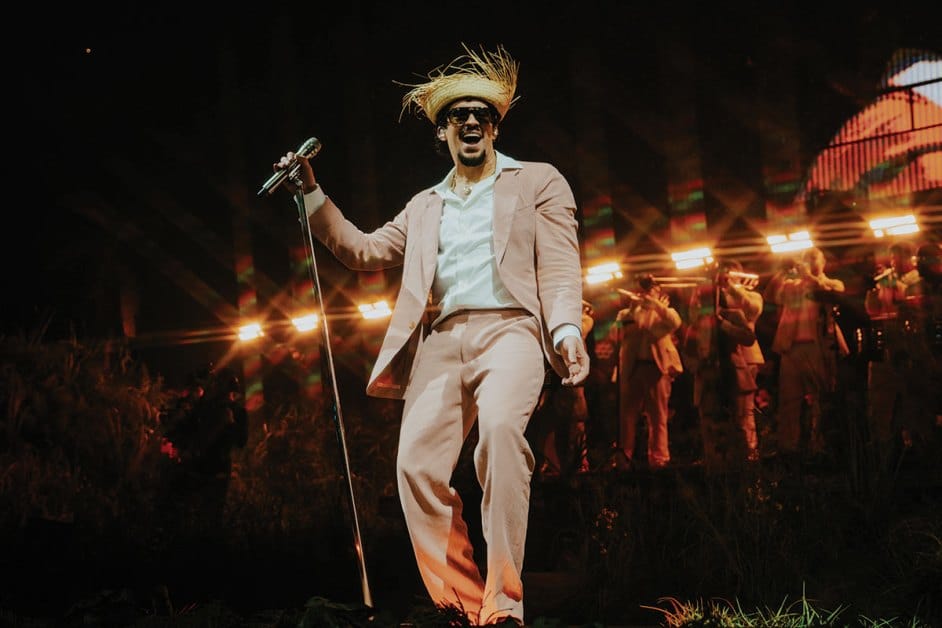
Puerto Rican band Chuwi opened the first of two nights at a sold-out Olympic Stadium on Bad Bunny’s world tour.
11/22/2025
Trending on Billboard From career milestones to new music releases to major announcements and those little important moments, Billboard editors highlight uplifting moments in Latin music. Here’s what happened in the Latin music world this week. Explore See latest videos, charts and news Paola Jara & Jessi Uribe Welcome Baby Girl Música popular power couple Paola Jara […]
Trending on Billboard Olivia Dean has criticized major ticketing companies after fans flagged steep resale prices for seats on her newly announced Art of Loving Live tour. The British singer addressed the issue directly on Instagram soon after general on-sale opened. In her first post, she told fans her team was “looking into” unexpected resale […]
Trending on Billboard
Rolling Loud has unveiled the full lineup for its 2026 Australia edition, confirming a heavyweight bill of U.S. rap acts alongside some of the country’s most prominent homegrown names.
Explore
See latest videos, charts and news
Rolling Loud Australia is set to take place across two cities in March: Sydney’s Centennial Park on March 7, and Melbourne’s Flemington Racecourse on March 8. The twin one-day events mark Rolling Loud’s first shows in Australia since 2019, and the first time the global hip-hop festival brand has expanded to a two-city format in the country.
Gunna will headline the two-city run, following Rolling Loud’s earlier confirmation that the rapper would anchor the event. Ken Carson joins him at top billing, extending the Opium-affiliated artist’s growing presence across the festival’s global footprint. Sexyy Red — previously announced — leads the second tier of performers.
The 2026 bill includes several major U.S. rap acts across its main stages. Sexyy Red, Tyga, Swae Lee, Lil Tjay, Ski Mask the Slump God, NLE Choppa, Quavo, Ian and rising rapper Osamason are among the international performers scheduled across the weekend. The lineup spans established touring names, TikTok-driven breakout acts and core Rolling Loud regulars who have been fixtures across the festival’s global editions.
In addition to the international programming, Rolling Loud Australia will feature a dedicated stage focusing on local artists from Australia and New Zealand. Acts announced for the regional platform include Hooligan Hefs, Youngn Lipz, Amarni, Day1, Lil Golo & Cult Shotta, 4ourttune and Jonny Chopps. While each city will include select local-only performers, the core lineup remains consistent across both dates.
Rolling Loud first debuted in Australia in 2019 with a one-day event at Sydney Olympic Park headlined by Future, Playboi Carti and Rae Sremmurd. That edition sold out quickly and became a key marker of the festival’s global expansion cycle. Its return in 2026 marks the brand’s first Australian event in seven years and the first time Rolling Loud has staged back-to-back shows in two Australian cities.
The announcement follows a period of continued international growth for the Miami-born festival, which recently added new editions across Europe, Asia and India. Rolling Loud India will take place later this month with a lineup headlined by Central Cee, Wiz Khalifa, Don Toliver and Karan Aujla.
Rolling Loud Australia 2026 will run in partnership with Primuse Entertainment as the local production partner. Further scheduling and site details are expected in the lead-up to the March events.
British music has had such a banner year in 2025, that Radiohead’s return has flown a touch under the radar. With Olivia Dean, Yungblud, Lola Young and RAYE all conquering the Billboard charts in the U.S., and Oasis putting on the biggest tour of the year, the return of the art-rock fivepiece after an seven-year […]
Trending on Billboard
Mexican rapper Santa Fe Klan takes a turn in his career with the release of Baile Cholo, a cumbia vallenata album featuring 26 songs that speak about love, heartbreak, loneliness, sadness, and pain.
“Since I was a child, before I started rapping, cumbia ran through my veins, so I always wanted to do something like this,” the artist tells Billboard Español. “It was a difficult mission and a lot of work on my part and the team’s, but today I can say we’re going to make everyone dance.”
Released on Thursday (Nov. 20) as his second album under Prajin Records, Baile Cholo was recorded in Monterrey, Mexico, a place that for many years has had a large Colombian and Mexican community dedicated to cumbia and vallenato.
The LP features multiple collaborations: Anaidita y Su Sonora on “No Hace Falta,” Alberto y Roberto on “Perro Lobo,” APV Passion Vallenata on “Nomás Lokeez,” Javier López y Los Reyes Vallenatos on “Bájate La Falda,” Los Kombolokos on “Tú Perfume,” and Toy Selectah, the renowned DJ from Control Machete, on “Y Si Nos Vamos.”
“This project comes from the heart. The collaborations aren’t for personal gain; rather, I’m supporting the people I’m collaborating with on the album,” Santa Fe Klan, whose real name is Ángel Quezada, says. “I’m opening the door for them to be known by my fans, just as they’re lending me their musical style and movement.”
Soon to turn 26 this month, the artist co-produced the set with Julián Villareal, blending raw lyrics — very much in Santa Fe Klan’s style — with the celebratory vibe inspired by the genre. “It’s a heartfelt gift for my fans,” he adds. “The songs are full of emotion, the kind of emotion that comes from the people in the neighborhood. Unity is strength to take this movement to the top.”
Below, Santa Fe Klan breaks down five essential tracks from Baile Cholo. To listen to the full album, click here.
Santa Fe Klan, Baile Cholo
Courtesy
“Claves”
Some of the tunes feature the pop superstar, others ended up as vault tracks when she released her Taylor’s Versions.
11/21/2025
Trending on Billboard
Mumford & Sons and Hozier’s “Rubber Band Man” completes a speedy four-week trip to No. 1 on Billboard’s Adult Alternative Airplay chart, rocketing six spots to the top of the Nov. 29-dated list.
The collaboration completes the fastest rise to No. 1 since The Black Keys’ “Beautiful People (Stay High)” took four frames to reign in February 2024.
Hozier earns his quickest coronation, exceeding the five weeks it took for his “Too Sweet” last year and the Mavis Staples-featuring “Nina Cried Power” in 2018. As for Mumford & Sons’ best, “I Will Wait” and “Believe” each needed only three weeks to lead in 2012 and 2015, respectively.
Hozier now boasts eight No. 1s. Mumford & Sons nab their sixth.
Most No. 1s, Adult Alternative Airplay:14, U213, Coldplay11, Dave Matthews (solo and with Dave Matthews Band)11, Jack Johnson9, The Black Keys8, Death Cab for Cutie8, Hozier8, John Mayer8, The Lumineers
“Rubber Band Man” is Hozier’s sixth No. 1 in a row, tying him with U2 for the longest streak in the chart’s nearly 30-year history. His run began in 2023 with “Eat Your Young.” U2 linked its six straight leaders in 2001-05.
Mumford & Sons last topped Adult Alternative Airplay with their Pharrell Williams collaboration “Good People” in April 2024. (In between, they hit Nos. 2 and 3 with “Rushmere” and “Caroline,” respectively.)
Concurrently, “Rubber Band Man” leaps 16-10 on Alternative Airplay, becoming Mumford & Sons’ 12th top 10 and Hozier’s third. On the all-rock-format, audience-based Rock & Alternative Airplay chart, the song holds at its No. 7 best with 3.6 million audience impressions in the week ending Nov. 20, a gain of 7%, according to Luminate.
The track placed at No. 28 on the most recently published, multimetric Hot Rock & Alternative Songs tally (dated Nov. 22, reflecting data Nov. 7-13). In addition to its radio airplay, it drew 1.6 million official U.S. streams and sold 1,000 downloads in that span.
“Rubber Band Man” is the lead single from Prizefighter, Mumford & Sons’ sixth studio album, due Feb. 13, 2026. Their LP Rushmere debuted and peaked at No. 3 on the Top Rock & Alternative Albums chart this April and has earned 98,000 equivalent album units to date.
All Billboard charts dated Nov. 29 will update Tuesday, Nov. 25, on Billboard.com.

 State Champ Radio
State Champ Radio 